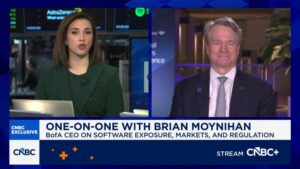When I see respectable companies whose share prices have fallen a long way, I often consider buying them for my Stocks and Shares ISA.
Investing in turnaround stocks within my ISA means any gains will be tax free for me. That can be a big benefit when buying truly unloved shares.
The FTSE 250 share I’m looking at today is certainly unloved. Shares in this 146-year-old business fell 45% in October alone. The stock has now fallen by an agonising 83% over the last five years.
Please note that tax treatment depends on the individual circumstances of each client and may be subject to change in future. The content in this article is provided for information purposes only. It is not intended to be, neither does it constitute, any form of tax advice. Readers are responsible for carrying out their own due diligence and for obtaining professional advice before making any investment decisions.
What’s this fallen star?
The company I’m looking at is specialist bank Close Brothers Group (LSE: CBG). This FTSE 250 firm is one of the top lenders in the UK motor finance sector. Unfortunately, this previously successful division is currently causing big problems for the bank.
The Financial Conduct Authority (FCA) is currently carrying out a review of the motor finance sector, focusing on historic commission payments paid to brokers.
A number of other big motor finance lenders are potentially affected, including Lloyds Banking Group. However, none of them have the concentrated exposure to motor finance of Close Brothers.
Close’s July 2024 accounts show motor loans of £2bn from a total loan book of £10bn — that’s 20% of its total loan book.
Lloyds, by contrast, had a £16bn motor finance loan book at the end of June. But this was only 3.5% of its £452bn loan book, which is mostly residential mortgages.
This concentration could be a big problem for Close Brothers if the FCA decides to make motor finance lenders pay compensation to borrowers. Close’s compensation could be very large, relative to the overall size of its business.
Value bargain or value trap?
The problem is that I really think there could be an opportunity here. Historically, Close Brothers has had a strong balance sheet with plenty of surplus capital.
Over the course of this year, the bank’s management has taken steps to raise additional capital. It’s sold the group’s asset management division and suspended the dividend.
Close Brothers’ shares are trading at 232p, as I write. That means the stock’s trading at an 80% discount to its July book value of around 1,200p per share.
It’s possible that when the FCA review’s finalised, Close Brothers will be able to pay any compensation needed and return to business as usual.
Possible, but not certain.
What I’m doing
The value investor in me spies a possible opportunity here. But the reality is that it’s impossible to predict what the potential liability for compensation might be.
If the PPI saga is anything to go by, this motor finance review could be longer and much more expensive for lenders than currently expected.
A Court of Appeal ruling against Close Brothers in October made matters worse. It seemed to suggest the FCA might demand a tougher standard of disclosure than previously thought.
For me, this situation’s too speculative. I won’t be adding the shares to my ISA. But I will be watching with interest.
This post was originally published on Motley Fool







